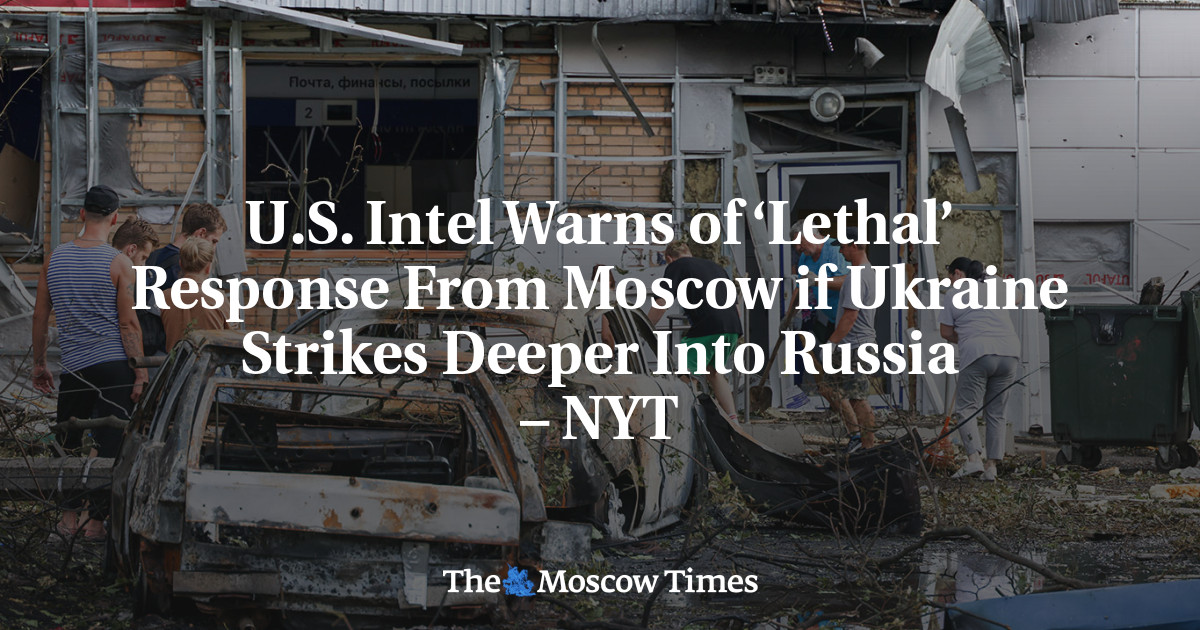
U.S. intelligence officials believe Russia could retaliate with lethal force if the Biden administration allows Ukraine to use Western weapons to strike deep within Russian territory, The New York Times reported Thursday, citing anonymous sources familiar with the matter.
The warning comes as President Vladimir Putin this week announced plans to revise Russia’s nuclear weapons doctrine, with the Kremlin framing it as a clear message to the West. Under the proposed changes, Moscow would consider any attack by a non-nuclear country supported by a nuclear power as a joint attack by both.
According to the NYT report, Russia could escalate covert arson and sabotage operations in Europe and launch “potentially lethal attacks” on U.S. and European military bases if President Joe Biden allows Kyiv to fire long-range missiles further into Russia. According to recent media reports, Moscow is already in secret negotiations brokered by Iran to deliver anti-ship cruise missiles to Yemen’s Houthi militias.
Some of Biden’s senior advisers reportedly agree with intelligence warnings, citing heightened concerns following Putin’s “especially bellicose” recent statements. Earlier this month, the Kremlin leader said the West risks war with Russia if it allows Kyiv to use longer-range weapons to strike targets inside his country.
The NYT report adds that U.S. officials are weighing the “potential risks and uncertain rewards” of allowing deep strikes. Some are skeptical that the limited number of missiles would significantly alter Ukraine’s position in the war, with its forces struggling to repel Russia’s creeping offensive in the eastern Donetsk region.
U.S. intelligence also predicts that Moscow would relocate key military assets like ammunition depots and command posts beyond the missiles’ range, which can reach up to 190 miles (300 kilometers).
Ukraine has already used some Western-supplied missiles to target Russian military positions in and around annexed Crimea, which Kyiv says it is determined to reclaim since Moscow annexed the peninsula in 2014.